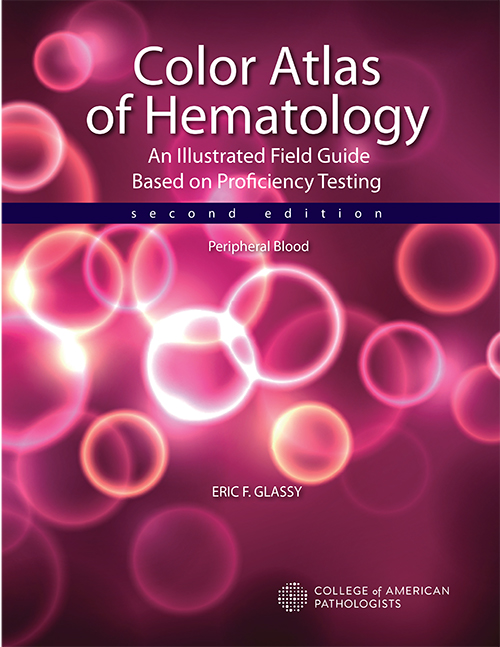Hemophilia drug interferes with APTT-based assays
Anne Paxton
September 2018—When a miracle drug comes along that is predicted to cause havoc in the laboratory, the drug could well seem like a double-edged sword. In the case of emicizumab (Genentech’s Hemlibra), for patients with hemophilia A, the mix of both benefits and drawbacks is likely to settle in for the long term.
Laboratories adjusting to the widening rollout of emicizumab will need to keep an important consideration in mind when performing coagulation testing for hemophilia patients, says Dorothy M. Adcock, MD, chief medical officer of LabCorp Diagnostics. “Emicizumab can interfere in APTT-based assays. The traditional factor VIII activity assay, the APTT-based one-stage assay, is not an accurate measure of patients’ level of hemostasis when they are on emicizumab.”

Dr. Levy
Emicizumab is a monoclonal antibody that represents one of the most dramatic advances in hemophilia treatment in decades. Approved by the FDA in November 2017, emicizumab could significantly reduce the treatment and disease burden of thousands of hemophilia A patients who have antibodies in their blood, known as inhibitors, that render standard factor VIII replacement therapies ineffective. Very soon, coagulation experts believe, the benefits of emicizumab will extend to all hemophilia patients.
“For patients with inhibitors, emicizumab is almost revolutionary in that they really haven’t had effective therapies to prevent bleeding,” says Guy A. Young, MD, director of the Hemostasis and Thrombosis Center at Children’s Hospital Los Angeles. He notes that patients with inhibitors have a 70 percent higher mortality rate than hemophilia patients without inhibitors. “In addition, those patients had a tremendous treatment burden—IV infusions three or four times a week or every day, with treatments lasting 45 minutes to an hour.” As a result, many did not adhere to the treatment. With emicizumab, patients with inhibitors will have less burdensome therapies that still lower their bleeding rates to those of patients without inhibitors who are on prophylactics, Dr. Young says.
“Bringing this medicine to patients is one of the things I am most proud of in my career,” Gallia Levy, MD, PhD, global clinical development lead for Hemlibra at Genentech, wrote in an email to CAP TODAY.
However, the benefits of emicizumab may come at the cost of laboratories’ ability to produce accurate coagulation test results for hemophilia A patients because emicizumab behaves differently from factor VIII in a key way: “Even the slightest concentration of emicizumab in the blood will normalize the activated partial thromboplastin time,” Dr. Young points out.
This means that activated partial thromboplastin time or any APTT-based test cannot be used in patients taking the drug, he says. “We will not be able to measure factor VIII levels accurately with the assays most available in the U.S. For the inhibitor patients, we will also not be able to track their inhibitor levels with the traditional assay. We may have a patient on emicizumab that is working fantastically to prevent their bleeding. That part’s great. But how we are going to be able to measure factor VIII activity and inhibitor titers is problematic currently.”
“That’s how emicizumab is going to create havoc in the laboratory, because lab tests that we normally would be comfortable doing and interpreting in hemophilia suddenly are no longer going to be accurate.”
While Genentech’s current U.S. product label outlines how emicizumab interacts with different coagulation tests and offers guidance on which tests are unaffected by the drug, coagulation testing experts interviewed by CAP TODAY point out there remains a critical awareness gap about the pitfalls of testing emicizumab patients.
Emicizumab reduces the bleed rate in hemophilia A patients with inhibitors via a simplified prophylaxis regimen that is patient-friendly: self-administered subcutaneous infusions once a week. In clinical trials of emicizumab, the drug produced a stunning difference in these patients’ bleeding levels. For instance, 54 of 57 patients (94.7 percent) under age 12 who received weekly subcutaneous emicizumab doses for bleeding prophylaxis had zero treated bleeds, in contrast with the typical pattern for these patients of monthly bleeds.
Tagged with: Blood/coagulation/hematology (see also Phlebotomy) -- Drug treatments/trials/dosing -- Hemophilia -- Pharmaceuticals --
Related Posts
In hemostasis, two hot-button testing issues
December 2017—Having validation data to support the use of age-adjusted D-dimer cutoffs with the D-dimer assay your laboratory uses is a must, and know well the limitations of point-of-care prothrombin time/INR testing. That advice and more was shared in a “Hot Topics in Hemostasis” session at CAP17, presented by Russell Higgins, MD, and Karen Moser, MD.









